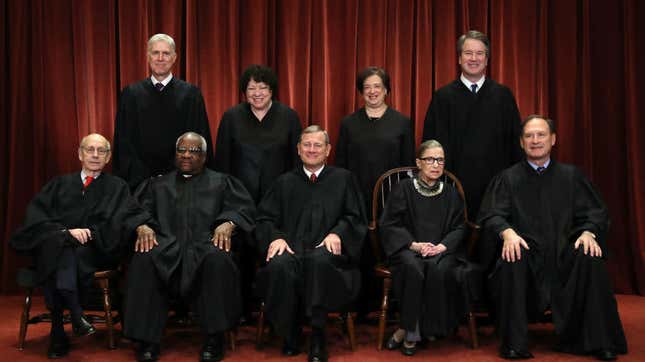
With the start of each June, the countdown begins to when the Supreme Court is expected to hand down decisions in cases that came before them in the term, and among the biggest items this term were cases involving census 2020 and partisan gerrymandering.
How the nation’s highest court rules in these cases could lead to speculation about whether the court, led by Chief Justice John Roberts, has become politicized, especially in the Trump era, according to the Los Angeles Times.
As the Times reports, when it comes to the case regarding gerrymandering, or the redrawing of districts to favor a particular political party over another, or the census case, where the Trump administration is fighting to be allowed to ask census-takers’ citizenship status, both put Roberts, who was appointed by a Republican president, “in an awkward spot.”
“To put it bluntly, both of these cases have major implications for the future of the Republican party,” Elizabeth B. Wydra, of the progressive Constitutional Accountability Center, told the Times. “If Roberts truly cares about the public perceiving him and his colleagues as something other than politicians in robes, he should be very worried by the potential impact to the legitimacy and public standing of the court.”
To attempt to avoid any appearance of partisan bias on a court that is currently comprised of five conservative and four liberal justices, Roberts has indicated that he’d like to avoid 5-4 decisions, especially in big cases, the Times explains, noting that to do so, conservatives would have to draw in at least one liberal in a big case, or liberals would have to get two conservatives on their side.
Roberts, as the Times notes, has publicly spoken of the court not being a bastion of either major political party:
“We don’t work as Democrats or Republicans,” he has publicly said. When President Trump derided an “Obama judge” in November, Roberts issued a rare statement to rebuke the president. “We do not have Obama judges or Trump judges, Bush judges or Clinton judges,”he said.
With cases at stake as big as political gerrymandering and citizenship questions, as well as a First Amendment case involving the display of crosses on public land and one about the racial makeup of juries, only time will tell in what direction this Supreme Court will take the nation.



